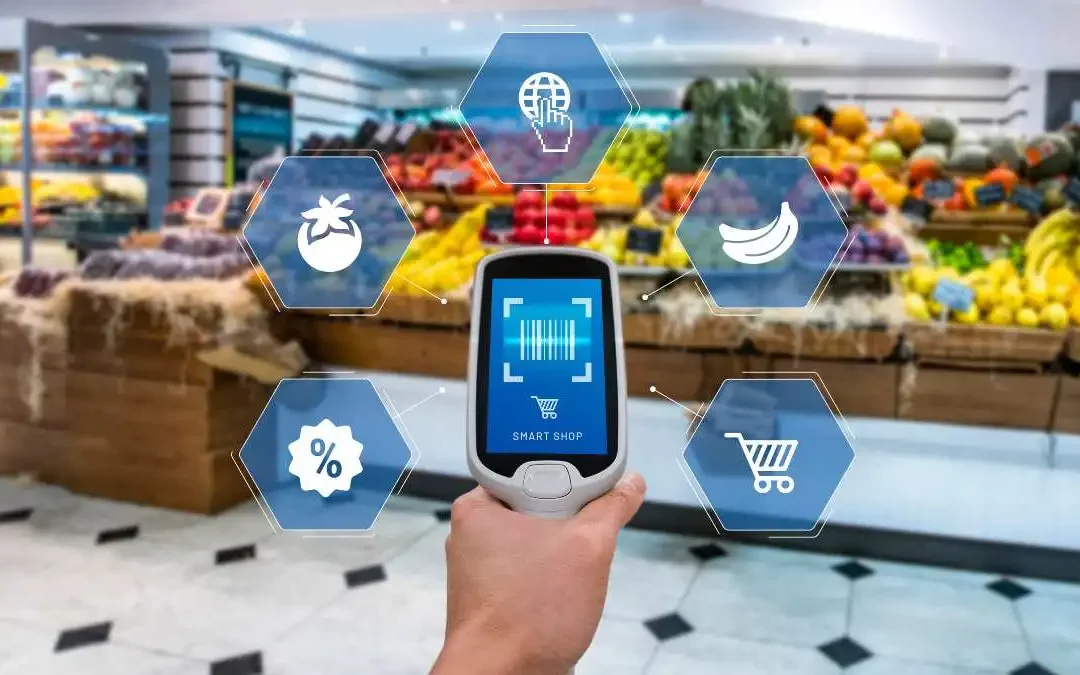According to the latest industry analyses, Conversational AI Shopping is set to become one of the pillars of the customer experience in retail. Grand View Research predicts that the global Conversational AI market will reach 26.6 billion by 2030, a sign of growing adoption and increasingly widespread strategic interest. Confirming this trend, IDC estimates that spending on Artificial Intelligence in the retail sector will reach 75 billion dollars by 2028.
An acceleration also made possible by the evolution of generative technologies: according to Gartner, by 2027, 30% of B2C companies will use conversational agents based on generative AI, capable of offering an increasingly natural, personalized and autonomous interaction. These data not only highlight the potential of the sector, but indicate a clear direction: the future of online shopping will be conversational, predictive and highly personalized.
These figures confirm that Conversational AI Shopping is no longer an emerging trend, but a strategic lever to personalize the interaction, increase the conversion rate and improve brand loyalty.
Updated on June 19th 2025
Estimated reading time: 8 minutes
Table of contents
- Conversational Shopping with AI to make the difference
- Beyond Multichannel: The Experience Must Be Personalized
- Generative AI Commerce with AI Agents
- Conversational Shopping with AI: Best Practices and Benefits
- How to implement Conversational Shopping with AI
- Conclusions
- Faqs about Conversational Shopping with AI
Conversational Shopping with AI to make the difference

Messaging applications such as WhatsApp, Messenger and WeChat are used by billions of people every day. Within these platforms, new ways of interacting between brands and consumers are being developed, which allow for:
- automating responses,
- accompanying customers in the purchase funnel,
- offering assistance and suggestions in real time,
- enabling commerce directly in the flow of conversation (chat commerce).
Beyond Multichannel: The Experience Must Be Personalized
Simply being present on multiple channels is no longer enough to win over customers. As highlighted in PwC’s “Experience is Everything” report, consumers today are not just looking for availability: they demand quality and consistency in the interaction, regardless of the chosen touchpoint.
In particular, what they expect is:
- Speed: immediate responses, reduced waiting times, rapid interactions.
- Convenience: easy access to information and services, at any time and from any device.
- Consistency: a uniform experience across all channels, without repetitions or inconsistencies between touchpoints.
- Humanity: even in digital channels, they want to feel empathy, attention and understanding – not robotic or impersonal responses.
This is where artificial intelligence for Conversational Shopping with AI comes in: a technology that goes beyond standard automation, combining natural language understanding, machine learning and behavioral data to offer personalized conversations in real time.
These intelligent systems do not simply “answer”: they learn, anticipate, recommend. They adapt the tone, recognize the user’s mood, and propose contextual solutions based on history and preferences.
The result?
A fluid, empathetic and immediate customer experience, capable of strengthening the relationship with the brand and increasing loyalty. In an era where competition is just a click away, the ability to truly dialogue with customers is what makes the difference.
Generative AI Commerce with AI Agents

The evolution of e-commerce in Conversational AI Shopping does not stop at traditional personalization. We are witnessing the emergence of a new frontier: Generative Commerce, powered by next-generation AI Agents capable not only of interacting, but of creating customized shopping experiences in real time.
In the near future – and partly already today – these intelligent agents will be able to:
- Recommend products like a personal stylist, analyzing the user’s tastes, behaviors, psychometric traits and even emotions, to propose aesthetically coherent and context-functional solutions.
- Respond to voice, text and visual commands (multimodal AI), making the shopping experience increasingly fluid, conversational and natural, even on mobile and wearable devices.
- Manage purchases autonomously, monitoring customer preferences and needs to anticipate needs, reorder usual products or notify relevant promotions without the need for manual input.
- Customize entire catalogs based on the individual user, generating descriptions, images and product variations based on their psychographic characteristics or contingent needs.
According to the latest projections by Deloitte and McKinsey, AI Agents will be responsible for a growing share of online interactions and conversions by 2030, transforming the role of e-commerce from a digital showcase to a proactive system of relationships and advice.
This transformation marks the beginning of a new era of digital commerce: an era in which every interaction is generative, personalized, and memorable, making the boundary between physical and digital retail increasingly blurred – and the relationship between brand and customer increasingly profound.
Conversational Shopping with AI: Best Practices and Benefits
In the world of modern e-commerce, speed, personalization and constant availability are no longer competitive advantages: they are basic expectations. Conversational AI Shopping users want to receive immediate answers, interact with brands that are always reachable and obtain advice and offers tailored to their needs, at any time of the day.
It is in this context that Chat Commerce is establishing itself, that is, the integration of the shopping experience within digital conversations, on channels such as WhatsApp, Messenger, Instagram, SMS or live chat. A rapidly growing trend, enabled by Conversational AI, which allows interactions to be automated while maintaining a high degree of personalization.
Companies that adopt Conversational AI Shopping strategies obtain concrete and measurable benefits:
- 24/7 customer service
Intelligent chatbots never sleep. They manage requests, solve problems and accompany the user throughout the purchase funnel – even outside of working hours. - Simple and intuitive purchasing guide
The user can get product recommendations as if they were talking to a salesperson, thanks to conversational interfaces that simplify navigation, eliminate friction and speed up the purchase decision. - Personalized offers in real time
Conversational AI systems can analyze behavioral data, preferences and history to propose discounts, upsells or related products in a contextual and relevant way. - Reduction of operational load on staff
The most frequent requests are handled automatically, allowing human operators to focus on higher value-added activities, such as managing complex cases or after-sales care. - Increased conversion and satisfaction
Fast, fluid and personalized experiences improve the conversion rate and encourage loyalty. When a customer feels understood, they are more willing to come back.
And the data confirms the value of this strategy: according to McKinsey research, 30% of customers are willing to pay more for a personalized service. This means that personalization is not just a lever for engagement, but a real driver of profitability.
In short, Chat Commerce is not just a new sales method: it is a relational channel, a source of insights and a strategic ally for the growth of digital business.
How to implement Conversational Shopping with AI
Implementing Conversational Shopping with AI is not just a technological choice, but a real paradigm shift in the relationship with the customer. Here are 5 fundamental steps to implement it successfully:
- Map the customer journey
Analyze the contact points between the customer and the brand, identifying the key moments in which AI can intervene to improve the experience: from the first visit to the site to post-sales assistance.
- Choose the right technology
Opt for scalable Conversational AI solutions that can be integrated with your existing systems (CRM, e-commerce, help desk). Consider including NLP (Natural Language Processing), Emotion AI and psychometric profiling components for greater personalization.
- Design intelligent conversations
Define effective conversational flows, capable of guiding the user without friction. Conversations must be natural, relevant and consistent with the brand’s tone of voice.
- Integrate data for personalization
Connect AI to customer databases to exploit purchase history, behaviors and preferences. This allows you to offer targeted suggestions and tailored promotions, increasing the average order value.
- Monitor and optimize
Once active, the system must be constantly measured and improved. Monitor KPIs such as response rate, conversions generated, customer satisfaction and NPS to refine flows and maximize results.
Conclusions
E-commerce is no longer just about quick transactions and online catalogs: it has become a relational ecosystem in which every interaction counts. Conversational Shopping with AI is now the beating heart of this transformation, making every phase of the shopping experience more fluid, intelligent and engaging.
From 24/7 assistance to personalized suggestions, to generative AI Agents capable of creating dynamic and multimodal experiences, conversational technologies are redefining the boundaries of the customer journey. Companies that are able to integrate these tools with strategic vision and attention to user experience will gain a lasting competitive advantage, building deeper and more loyal relationships with their customers.
In an increasingly crowded and digital market, listening, understanding and dialogue are no longer options, but prerequisites for growth. The future of retail is conversational, personalized and – above all – already begun.
Faqs about Conversational Shopping with AI
It is the use of artificial intelligence to automate conversations with customers during the online purchasing process.
Quick responses, personalized offers, 24/7 assistance and an improved user experience.
Through intelligent chatbots and official APIs, which allow automatic interaction on the most used channels.
Not completely. However, they can take care of the most repetitive tasks and leave the higher-value conversations to human operators.
It depends on the complexity of the project. There are scalable SaaS solutions for every level of business.
Updated on June 19th 2025

